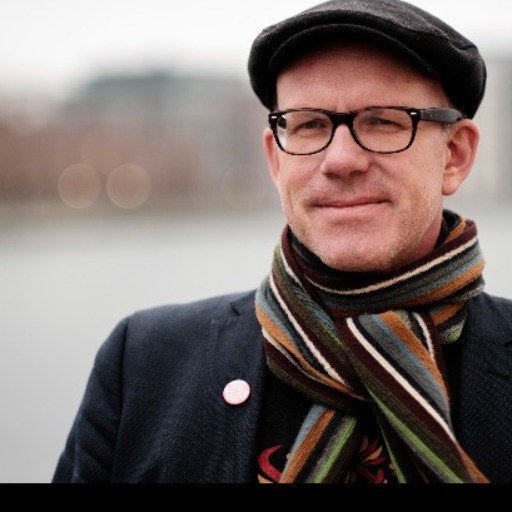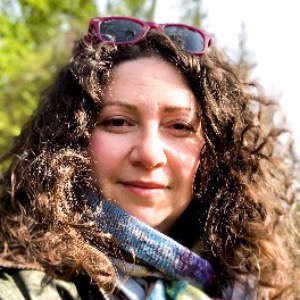We use cookies on this website. Cookies help us deliver the best experience on our website. Read about cookies.
-
- Education
- Education
- Programmes and courses
- Applications and admissions
- Tuition fees
- Scholarships
- Exchange studies at Malmö University
- Study Guidance
-
- After admission
- After admission
- Moving to Malmö
- Pre-orientation
- Arrival guide
-
- About studies at Malmö University
- About studies at Malmö University
- Why choose Malmö University
- Understanding university studies
- Connect with our students
On the page -
- Research
- Research
-
- Doctoral studies
- Doctoral studies
- Doctoral courses
-
- Doctoral schools
- Doctoral schools
- Doctoral school: Education, Learning and Globalisation
- Doctoral school: The National Research School for Professionals in Social Services
- Doctoral school: Learning in Multicultural Societal Contexts
- Doctoral school: ComBine
- Doctoral school: Swedish National Graduate School in Science and Technology Education Research
- Doctoral school: Relevancing Mathematics and Science Education (RelMaS)
- Doctoral school: Sustainable Movement Education
- Doctoral school: Finding ways in a time of great future challenges (FinnFram)
- Doctoral school: Pedagogy and Vocational Skills
- Doctoral school: Culturally Empowering Education through Language and Literature
- Research subjects
-
- Research centres
- Research centres
- Biofilms Research Centre for Biointerfaces
- Citizen Health
- Imagining and Co-Creating Futures
- Institute for Urban Research
- Malmö Institute for Migration Studies
- Literacy and Inclusive Teaching
- Centre for Work Life Studies
- Sustainable Digitalisation Research Centre
- Centre for Sexology and Sexuality Studies
-
- Research publications
- Research publications
- Search publications
- Malmö University Press
- Research events
- Participate in a research study
- Coffee Break Quiz
On the page -
- Collaboration and Innovation
- Collaboration and Innovation
- Innovation
- Collaboration with students
-
- Collaborate with researchers
- Collaborate with researchers
- Labs and facilities
- Culture collaboration
- Support Malmö University
- Alumni & Friends
On the page -
- About us
- About us
-
- Faculties and departments
- Faculties and departments
-
- Faculty of Culture and Society
- Faculty of Culture and Society
- Department of Urban Studies
- Department of Global Political Studies
- School of Arts and Communication
-
- Faculty of Education and Society
- Faculty of Education and Society
- Department of Childhood, Education and Society
- Department of Sports Sciences
- Department of Natural Science, Mathematics and Society
- Department of School Development and Leadership
- Department of Culture, Languages and Media
- Department of Society, Culture and Identity
-
- Faculty of Technology and Society
- Faculty of Technology and Society
- Department of Computer Science and Media Technology
- Department of Materials Science and Applied Mathematics
-
- Faculty of Odontology
- Faculty of Odontology
- Master's programmes in Dental Science
- University Dental Clinic
- Management and decision-making paths
-
- Vision, objectives and strategy 2025
- Vision, objectives and strategy 2025
- Global engagement
- Sustainability
- Widened recruitment and participation
- Quality assurance work at the University
-
- Malmö Academic Choir and Orchestra
- Malmö Academic Choir and Orchestra
- Student work – video pieces
-
- Annual Academic Celebration
- Annual Academic Celebration
- Academic traditions
- Meet our new professors
- The University in a troubled world
On the page
Doctoral school: Culturally Empowering Education through Language and Literature
Education through Language and Literature
A national doctoral school that aims to strengthen Swedish teacher education by studying and developing culturally empowering education through language and literature.
About the doctoral school
The graduate school Culturally Empowering Education through Language and Literature (CuEEd-LL) is a national research school that aims to strengthen Swedish teacher education by studying and developing culturally empowering education through language and literature.
The doctoral school is financed by the Swedish Research Council and, in addition to Malmö University, includes Gothenburg University, Stockholm University and Jönköping University, which coordinates the graduate school.
The purpose of the doctoral school
- To strengthen Swedish teacher education by studying and developing culturally empowering education through language and literature.
- To support equitable, high-quality education and participation in a globalised and digitised world.
Research themes
Regardless of their school placements, disciplines and teaching levels, all teachers must be competent in using language and literature to develop communicative practices and create inclusive environments in heterogeneous educational contexts. The doctoral school's research themes are informed by the fields of Southern Multilingualism and Diversities, Culturally Responsive Pedagogy, and Decoloniality. These fields view language and literature as critical for shaping and articulating cultures and (inter)cultural understanding. With these fields as a point of departure, our research aims at illuminating how language- and literature-based pedagogical interventions can culturally empower pupils and help them understand and confidently participate in complex and diverse cultural contexts.
Communication is a meaning-making enterprise that builds on the entanglement of resources from singular/multiple language modalities and embodiments: reading, writing, signing, seeing, listening, speaking, etc. Literature is also understood as communicative and an aesthetic and multilingual expression in different genres and media, that gives voice to human experiences and emotions. According to the current steering documents (in Sweden), practising language teachers shall adopt a holistic view of language and literature.
Possible examples of research themes that can be explored within the doctoral school
- Language and literature in school and other educational contexts, and in teacher education;
- Culture through language and literature in different teacher education programmes;
- Opportunities and challenges of using language and literature in school and other educational contexts, and in teacher education;
- Historical and contemporary perspectives on multilingualism, literacy and literature;
- Reading and writing processes in children and adults;
- The impact of digital processes on communication, culture, and diversity in different fields of education.

